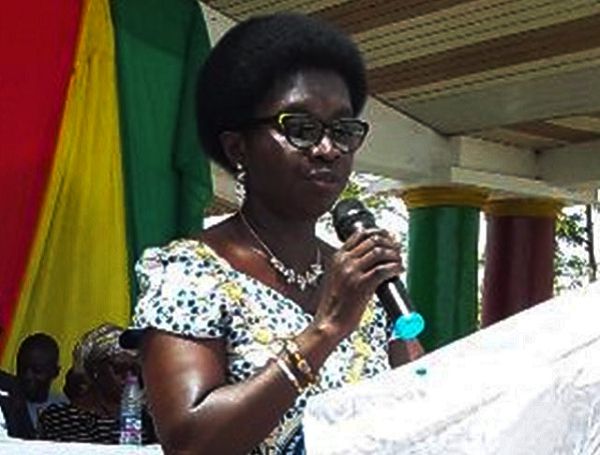
Quality midwifery care saves lives
Every year since 1992, the International Confederation of Midwives (ICM) leads the celebration of the International Day of the Midwife on May 5 to honour midwives and what they do for mothers, babies and families around the world.
The celebration is an important occasion used to show appreciation to midwives, who are a group of hardworking workers in the health sector, and help them feel valued, respected and important.
Advertisement
This year’s theme: “Midwives: Defenders of Women’s Rights” highlights the important work midwives do working ‘with woman’, imparting strength and empowerment and protecting women’s right to choose the maternity care they want for themselves and their babies.
The idea of celebrating the International Midwives Day annually, was mooted at the conference of ICM held in the Netherlands in 1987.
Colourful event
The celebration in Ghana was climaxed with a colourful ceremony in Bolgatanga in the Upper East Region on Monday, May 7.
Between 1996 and 2015, maternal mortality ratio of Ghana declined at a moderating rate to reduce from 527 deaths per 100,000 live births in 1996 to 319 deaths per 100,000 live births in 2015.
From the 2017 National Maternal Mortality Survey, the country’s maternal mortality ratio is now 310 per 100,000 live births.
The UN News, on its website, outlines the critical roles midwives play, the five main reasons why midwives are important and the impact they have on mothers’ and babies’ health.
Quality midwifery
According to the World Health Organisation (WHO), quality midwifery reduces maternal and newborn mortality and stillbirth rates by over 80 per cent, and reduces pre-term labour and birth by 24 per cent.
The organisation contends that midwives save millions of lives each year and for that reason, the world, including third world countries such as Ghana, have seen a steady decline in maternal and newborn deaths since 1990.
This is because more women are receiving skilled midwifery care: from 67 per cent in 2010 to 79 per cent in 2017.
Despite this achievement, thousands of women and newborns continue to die each year during pregnancy and childbirth and the UN estimates that 303,000 women and about 2.7 million newborn babies died in 2015 globally.
According to the UN sexual and reproductive health agency, United Nations Population Fund (UNFPA), today, the maternal mortality ratio stands at 216 deaths per 100,000 live births. This is more than 800 women dying every day while giving life.
Most of these deaths are preventable and the vast majority of these women lost their lives due to complications and illnesses that could have been prevented with proper ante-natal, delivery and post-natal care – services provided by midwives.
Maternal and newborn death rate
Even though the maternal and newborn death rate is declining, pregnancy and childbirth remain risky for the health of many women around the world.
For every woman who dies in childbirth, an estimated 20 to 30 encounter injuries, infections or disabilities during labour.
Quality midwifery also improves breastfeeding rates and psycho-social outcomes, reducing the use of interventions, in particular caesarean sections.
What’s more, as members of their communities, midwives are able to provide culturally sensitive care that is more likely to have a lasting impact.
One of the most serious childbirth injuries is obstetric fistula – a hole in the birth canal that can develop during a prolonged, obstructed labour.
The UNFPA says its impact on women is “catastrophic” as fistula survivors often experience incontinence, chronic medical problems and social isolation.
It is estimated that over two million women in sub-Saharan Africa, Asia, the Arab region and Latin America and the Caribbean are living with fistula, and some 50,000 to 100,000 new cases develop every year.
Yet, this condition is almost entirely preventable when women have access to timely, high-quality care.
Enormous responsibilities
Despite their critical roles and their enormous responsibilities in the healthcare delivery system, there are many challenges to increasing the availability of midwifery services.
Midwives – who are overwhelmingly women – frequently endure poor pay, low status and a lack of support, according to the UNFPA.
The agency also notes that gender biases often play a role in the problems midwives experience.
At the ceremony to climax the national celebration in Bolga yesterday, the President of the Ghana Registered Midwives Association (GRMA), Madam Netta Ackon, on behalf of the association, made an urgent appeal to the government and other stakeholders in the health sector to help address issues of equity in the distribution of health infrastructure, basic social amenities and logistics, particularly in deprived areas where midwives work to better the lives of rural women and children.
This appeal excellently highlights the major challenges confronting midwives in the country.
According to the GRMA, when the needed support was given, it would enable its members to deliver to the best of their abilities, thereby ensuring that the rights of women and children were guaranteed.
While acknowledging the fact that the government has the enormous responsibility to provide midwives with the necessary support, both financial and material, to enhance their work, all stakeholders in the health sector, as well as related groups and organisations, need to support the midwife to attain “Safe Motherhood”, as well as promote the midwifery profession throughout the country by increasing awareness of midwives’ contributions.




